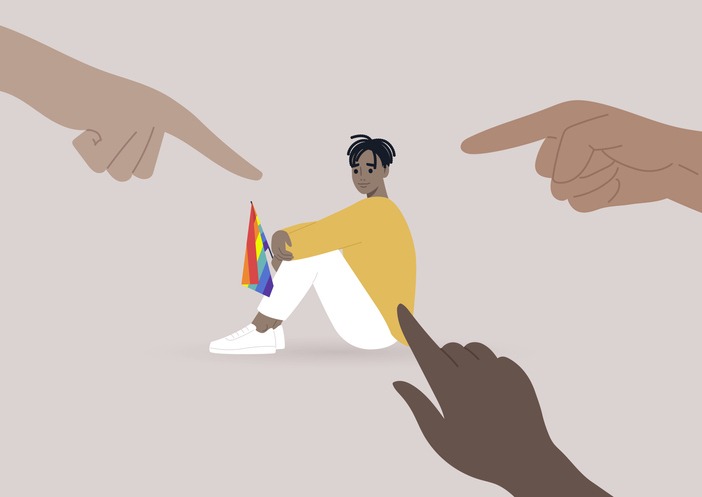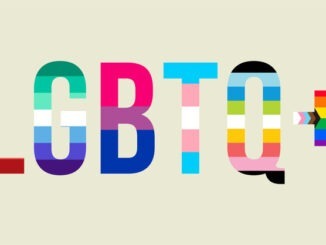
Medical staff come from a broad cross section of backgrounds, experiences, sexual orientations and gender identities – here’s what the BMA is doing to ensure an inclusive profession
CREDIT: This is an edited version of an article that originally appeared on BMA
The BMA is clear that discrimination on the basis of sexual orientation and/or gender identity has no place in the medical profession. It is committed to promoting equal rights and opportunities, proactively tackling discrimination or disadvantage in all forms, and creating an open and inclusive culture for all its members, staff and stakeholders.
LGBTQ+ people in the medical profession
The BMA is working to understand and improve the experiences of LGBTQ+ medics in education, training and the workplace. In 2022 it carried out a survey, working with the Association of LGBTQ+ Doctors and Dentists (GLADD), to find out
- Individual experiences of phobia and discrimination and their impact on professional and personal wellbeing
- How inclusive of diverse sexual orientations and gender identities do people think their work and study environments are
- Qhat action is needed to ensure a medical profession free from discrimination on the basis of sexual orientation and gender identity.
Key survey findings
- A majority of LGBTQ+ people still do not feel comfortable being completely open with everyone in their workplace about their sexual orientation and gender identity. Just under half (46%) of lesbian, gay, bisexual, and queer respondents (LGBQ+) reported they were open about and just over a third (34%) of trans respondents said they were open with everyone in their place of work or study.
- There are notable differences in views on the extent to which homophobia, biphobia and transphobia exist within medicine. 71% of LGBQ+ respondents think that homophobia and biphobia are an issue in the wider profession, compared with just over a quarter (26%) of heterosexual respondents. 84% of trans respondents think transphobia is an issue in the wider medical profession, compared with half (49%) of cisgender respondents.
- Experiences of homophobic, biphobic and transphobic behaviour in medicine are not uncommon. More than two in five (43%) lesbian, gay, bisexual and queer respondents had directly experienced homophobia or biphobia, and almost half (49%) of trans respondents said they had directly experienced transphobia, at least once in the past two years. Experiences ranged from derogatory language, social exclusion, and having their professional competence doubted, to overt hostility, threats and violence.
- ‘Low-level’ microaggressions, ‘jokes’ and ‘banter’ continue to be widely experienced. 94% of LGBQ+ respondents and 81% of trans respondents had heard or overheard homophobic, biphobic or transphobic ‘jokes’ or banter.
- Discrimination and harassment persist. Over a quarter (29%) of LGBQ+ respondents, and three in five trans respondents (59%) considered their experiences were serious enough to amount to unlawful discrimination, abuse or harassment.
- Most incidents go unreported. Over three quarters (78%) of lesbian, gay, bisexual or queer respondents and 70% of trans respondents said they had not reported their experiences to anyone. People who witness homophobic, biphobic or transphobic behaviour directed at others are also unlikely to report it. More than four in five (85%) of respondents to this question who had witnessed homophobia or biphobia and 84% of people who witnessed transphobia not to report it.
- Homophobia, biphobia and transphobia are driving some LGBTQ+ people from the profession. One in eight lesbian, gay, bisexual and queer respondents, and one in three trans respondents, have considered leaving or have actually left their job due to discrimination.
- Despite negative experiences, many LGBTQ+ people are optimistic that things are changing or can change for the better. 63% of lesbian, gay, bisexual and queer respondents and 46% of trans respondents think that the medical profession has, overall, become more inclusive of LGBTQ+ people in the last five years. However, heterosexual and cisgender respondents are more likely to think the profession has become more inclusive than LGBTQ+ people themselves.
What the BMA is calling for:
Improving medical curricula and teaching about LGBTQ+ people and their health needs:
More varied and inclusive teaching about LGBTQ+ people and their health needs, developed in partnership with LGBTQ+ people; mandatory inclusion of key elements of LGBTQ+ healthcare in both undergraduate and postgraduate medical curricula; and the removal of stereotypical representations and entrenched tropes of LGBTQ+ people in medical teaching cases, examinations and assessments.
Better training for doctors and medical students on inclusion in the workplace/at medical school:
A greater focus on the negative impact of microaggressions and ‘low’ level behaviours on workplace culture and individual wellbeing, with specific training and CPD resources on LGBTQ+ inclusive leadership targeted at senior doctors and medical managers.
Increasing the visibility of LGBTQ+ role models and positive examples of inclusion in education and the workplace:
Clearer commitments from senior leaders across the medical profession to actively champion LGBTQ+ inclusion and challenge discrimination, and more visible examples of action that NHS organisations are already taking to tackle prejudice and discrimination against LGBTQ+ staff and patients.
Enabling dialogue and space to learn:
Facilitated and reflective learning spaces where doctors and medical students can ask questions and explore their attitudes, biases and behaviours without fear of recrimination, support for staff networks and peer support groups, including networks for different groups within the LGBTQ+ acronym, and a holistic approach to tackling unlawful discrimination in all forms.
Improving evaluation of experiences, information and feedback loops:
Systematic approaches to collecting data on the experiences of LGBTQ+ staff and patients, a wider range of methods to report both individual incidents and wider workplace culture issues, and more visible organisational accountability for addressing discrimination in medical schools and medical workplaces. Organisations should also review their existing policies to ensure that they are LGBTQ+ inclusive.


Be the first to comment